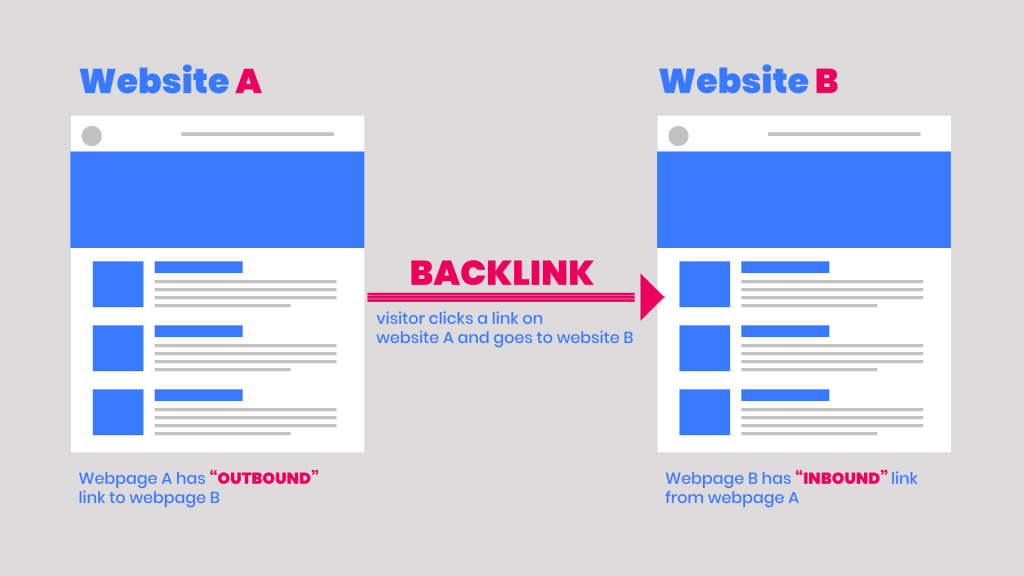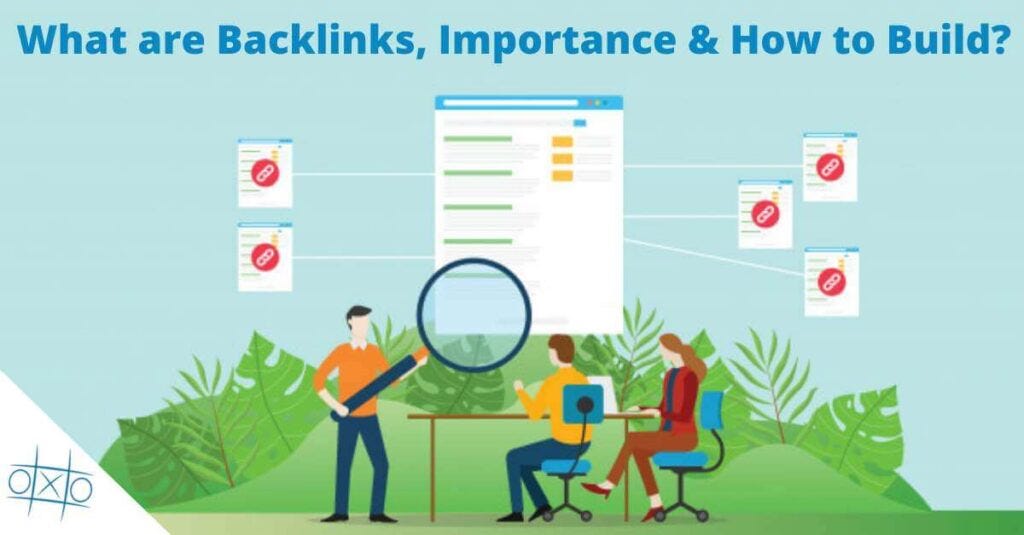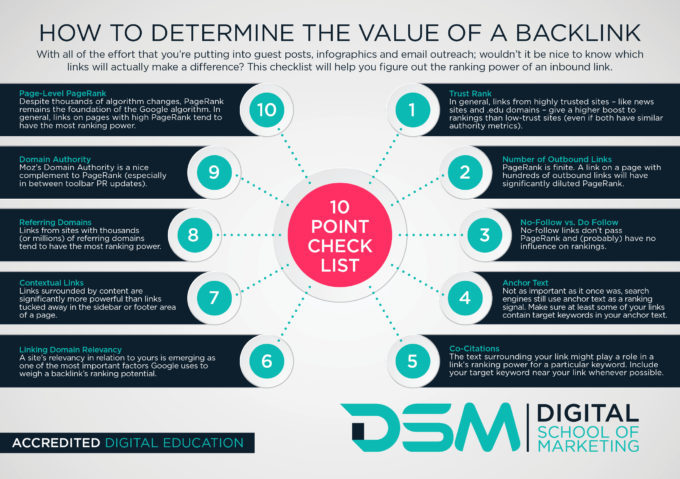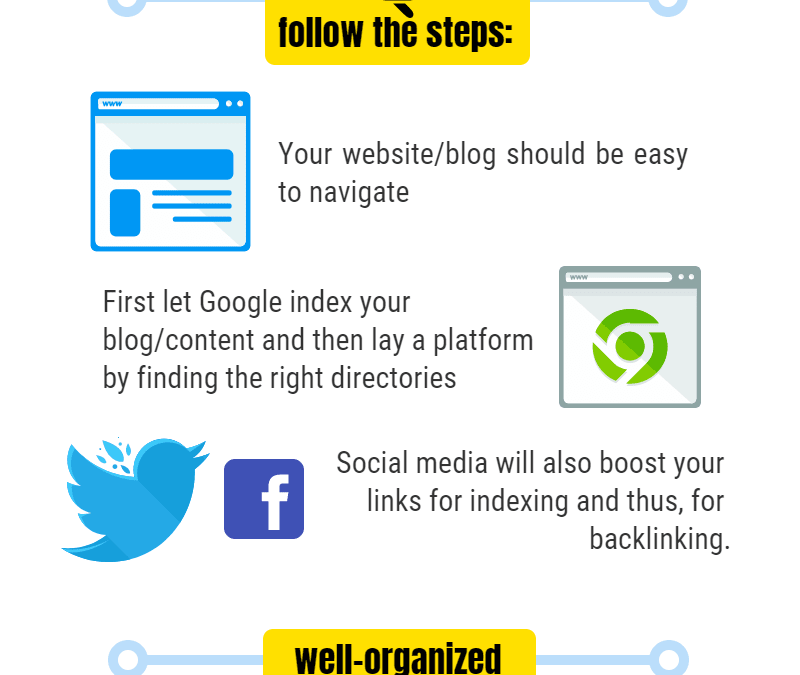Table of Contents
If you want your website to rank high in search engine results, then you need to understand the concept of backlinks and their significance in SEO. Backlinks are essentially links from one website to another, and they play a crucial role in influencing search engine rankings.
By having quality backlinks pointing to your website, search engines view your site as more trustworthy and authoritative, leading to higher rankings.
In this article, we will explore the importance of backlinks for SEO and how they can boost your website’s visibility in search results.
What are backlinks?
Backlinks are links that are created when one website links to another. They are also known as inbound links or incoming links. Backlinks are an important factor for search engine optimization (SEO) as they help search engines determine the credibility and relevance of a website. Essentially, backlinks act as votes of confidence from other websites, indicating that your website is valuable and trustworthy.
Definition of backlinks
A backlink is a hyperlink that directs traffic from one website to another. It is like a referral from one website to another, indicating a vote of confidence and relevance. When a website has a lot of backlinks from reputable sources, search engines see it as a signal that the website is valuable and trustworthy.
Types of backlinks
There are two main types of backlinks:
- Natural backlinks: These are backlinks that occur naturally without any effort from the website owner. They are earned through high-quality content and website authority. Natural backlinks come from other websites linking to your content because they find it valuable and relevant.
- Manual or acquired backlinks: These are backlinks that are actively sought and obtained by the website owner. This method involves reaching out to other website owners, bloggers, or influencers to ask for a backlink. Manual backlinks can be obtained through guest blogging, influencer outreach, or social media promotion.
Why are backlinks important for SEO?
Backlinks are crucial for SEO and play a vital role in improving search engine rankings, increasing website visibility, driving organic traffic, establishing website credibility, and enhancing website authority.
Improves search engine rankings
Search engines like Google use complex algorithms to determine the relevance and authority of a website. Backlinks are one of the key factors that search engines consider when ranking websites. When a website has a high number of relevant and high-quality backlinks, it signals to the search engines that the website is valuable and trustworthy. This can result in higher search engine rankings and increased visibility.
Increases website visibility
Backlinks contribute to the visibility of a website by increasing its presence on search engine results pages (SERPs). When a website has a strong backlink profile, it is more likely to appear higher in the search results, making it more visible to potential visitors. Increased visibility can lead to more organic traffic, as users are more likely to click on websites that appear higher in the search results.
Drives organic traffic
Backlinks can drive organic traffic to a website. When other websites link to your content, it creates an opportunity for users to click on the link and visit your website. These visitors are considered organic traffic, as they find your website through a search engine or through other websites. The quality and relevance of the backlinks determine the quality of the organic traffic generated.
Helps establish website credibility
Backlinks from reputable and authoritative websites help establish the credibility of your website. When websites with a strong authority in your niche or industry link to your content, it reflects positively on your website’s credibility. Users are more likely to trust and engage with websites that have backlinks from trusted sources, as it indicates that the information provided is reliable and trustworthy.
Backlinks contribute to the authority and expertise of a website. When a website has a high number of backlinks from reputable sources, it signals to search engines that the website is an authoritative source of information. This can result in higher rankings and increased visibility, as search engines aim to provide users with the most authoritative and relevant content.

How do backlinks work?
Understanding how backlinks work is essential in implementing an effective SEO strategy. Backlinks affect search engine rankings and visibility through search engine algorithms, crawling and indexing, and evaluating backlink quality.
Search engine algorithms
Search engines like Google use algorithms to determine the relevance and authority of a website. Backlinks are one of the key factors that search engine algorithms consider when ranking websites. The algorithms analyze various aspects of backlinks, such as the number, quality, and relevance of the links, to determine the credibility and value of a website.
Crawling and indexing
Search engines use web crawlers to systematically browse the internet and discover new websites and content. When a website is crawled, the crawlers follow the links on the website and discover new content. Backlinks are important in this process, as they provide pathways for search engine crawlers to navigate through different websites and discover new content that they might not have found otherwise.
Once a website is crawled, search engines index the content and store it in their databases. Indexing includes analyzing and categorizing the content based on various factors, including backlinks. The presence of backlinks from reputable sources can signal to search engines that the content is valuable and relevant, which can result in better indexing and visibility on search engine results pages.
Evaluating backlink quality
Search engines evaluate the quality of backlinks to determine the credibility and relevance of a website. Quality backlinks come from reputable and authoritative sources. Search engines consider factors such as the authority of the linking domain, the relevance and context of the link, and the anchor text used in the link. High-quality backlinks can positively impact search engine rankings and visibility, while low-quality or spammy backlinks can have a negative impact.
Types of backlinks
Backlinks can be categorized into two main types: natural backlinks and manual or acquired backlinks.
Natural backlinks
Natural backlinks occur organically without any effort from the website owner. They are earned through the creation of high-quality and valuable content. When other websites find the content valuable and relevant, they might naturally link to it. Natural backlinks are considered more valuable by search engines, as they are a genuine indication of the website’s credibility and quality.
Manual or acquired backlinks
Manual or acquired backlinks are actively sought and obtained by the website owner. This method involves reaching out to other website owners, bloggers, or influencers to request a backlink. Manual backlinks can be obtained through various strategies like guest blogging, influencer outreach, social media promotion, or link reclamation. While manual backlinks can be effective in building backlink profiles, it is important to ensure that they come from relevant and authoritative sources to maintain high quality.

How to build high-quality backlinks
Building high-quality backlinks is key to a successful SEO strategy. Here are some effective strategies to build high-quality backlinks:
Creating valuable and shareable content is crucial in earning natural backlinks. When your content provides value to readers, they are more likely to share it on their websites or social media platforms, generating backlinks. Focus on creating unique, informative, and engaging content that stands out from your competitors. This can include blog posts, articles, infographics, videos, or guides.
Guest blogging
Guest blogging involves writing and publishing content on other websites in exchange for a backlink. Look for reputable websites or blogs in your niche or industry that accept guest posts and have a strong readership. Write high-quality and informative guest posts that add value to the target website’s audience. In return, you can request a backlink to your website within the guest post or in your author bio.
Social media promotion
Utilize social media platforms to promote your content and generate backlinks. Share your content on platforms like Facebook, Twitter, LinkedIn, and Instagram, targeting relevant communities and groups. Engage with your audience, encourage them to share your content, and provide incentives for doing so. This can include contests, giveaways, or exclusive access to valuable resources.
Influencer outreach
Identify influential individuals or brands in your industry and reach out to them for collaboration opportunities. This can involve asking them to review your product or service, collaborate on content creation, or participate in interviews. When influencers mention or link to your website, it can result in valuable backlinks and increased visibility.
Link reclamation
Link reclamation involves finding and fixing broken or unlinked mentions of your brand or website on the internet. Use tools like Google Alerts, Mention, or Ahrefs to monitor online mentions of your brand. If you come across mentions that do not include a link to your website, reach out to the website owner and kindly request a backlink. This strategy can help you leverage existing mentions and turn them into valuable backlinks.
Tools to analyze backlinks
Analyzing backlinks is essential to monitor and improve your backlink strategies. There are several tools available that can help you analyze and track the performance of your backlinks. Some popular tools include:
Google Search Console
Google Search Console is a free tool provided by Google that allows website owners to monitor the performance of their website in Google’s search results. It provides valuable insights into the number of backlinks, referring domains, organic search traffic, and other metrics. Additionally, it notifies website owners of any issues or penalties related to their backlinks.
Ahrefs
Ahrefs is a powerful SEO tool that provides comprehensive backlink analysis. It allows you to monitor the number and quality of backlinks, analyze competitor backlink profiles, identify link-building opportunities, and evaluate the impact of your backlink strategies. Ahrefs also provides insights into referring domains, anchor text distribution, and other crucial backlink metrics.
Moz
Moz is another popular SEO tool that offers a range of features to analyze and track backlinks. It provides information on domain authority, spam score, anchor text usage, and link-building opportunities. Moz offers both free and paid tools, with the paid options providing more in-depth analysis and advanced features.
SEMrush
SEMrush is a comprehensive SEO tool that includes backlink analysis features. It allows you to monitor backlink performance, analyze competitor backlink profiles, and identify link-building opportunities. SEMrush provides insights into referring domains, anchor text distribution, and other backlink metrics. It also offers features for keyword research, site auditing, and competitor analysis.

Common backlink mistakes to avoid
While building backlinks is important, it is crucial to avoid certain mistakes that can negatively impact your SEO efforts. Some common backlink mistakes to avoid include:
Buying backlinks
Buying backlinks is a violation of search engine guidelines and can result in penalties or even deindexing of your website. It is important to focus on earning high-quality backlinks through valuable content and legitimate link-building strategies. Purchasing backlinks from low-quality or spammy sources can harm your website’s reputation and rankings.
Using low-quality directories
Submitting your website to low-quality directories that have little to no relevance to your industry can result in low-quality backlinks. Search engines consider the quality and relevance of backlinks, so it is important to focus on securing backlinks from reputable and authoritative sources that are relevant to your niche.
Excessive anchor text optimization
Using the same anchor text excessively to link back to your website can be seen as manipulative by search engines. It is important to vary your anchor text and use natural, relevant, and contextual anchor text. This helps search engines understand the relevance of your backlinks and ensures a more natural backlink profile.
Ignoring link relevance and context
It is important to ensure that the backlinks you earn or acquire are relevant to your website’s content and industry. Backlinks from unrelated or irrelevant websites can have minimal impact on your SEO efforts. Focus on securing backlinks from sources that are relevant to your niche and provide value to your target audience.
Using link farms or PBNs
Link farms and private blog networks (PBNs) are networks of websites created solely for the purpose of generating backlinks. These networks often include low-quality or spammy websites that do not provide value to users. Search engines actively penalize websites associated with link farms or PBNs, so it is important to avoid them and focus on building genuine, high-quality backlinks.
Importance of a natural backlink profile
Maintaining a natural backlink profile is crucial for long-term SEO success. A natural backlink profile includes diversity of anchor texts, a variety of linking domains, referring domains’ authority, and link velocity.
Diversity of anchor texts
A natural backlink profile includes a diverse range of anchor texts. Using a variety of anchor texts helps search engines understand the context and relevance of your backlinks. It is important to vary anchor texts and use natural, relevant, and contextual terms. Avoid excessive use of exact-match anchor texts, as it can appear manipulative and harm your website’s rankings.
Variety of linking domains
Having a variety of different domains linking to your website is an important aspect of a natural backlink profile. Search engines consider the diversity of linking domains as an indication of the credibility and authority of a website. Aim to secure backlinks from a wide range of reputable and authoritative sources within your industry.
The authority of referring domains plays a significant role in the quality and impact of backlinks. Backlinks from high-authority websites are considered more valuable by search engines. Monitor the authority of referring domains using tools like Ahrefs or Moz, and prioritize obtaining backlinks from authoritative sources to enhance your website’s authority.
Link velocity
Link velocity refers to the rate at which you acquire new backlinks. A natural backlink profile includes a gradual and consistent acquisition of backlinks over time. Sudden spikes in backlink acquisition can appear suspicious to search engines and may result in penalties. Aim for a steady and organic growth of backlinks to maintain a natural and healthy backlink profile.

Measuring the impact of backlinks
Measuring the impact of backlinks is essential to evaluate the effectiveness of your backlink strategies. Here are some key metrics to consider when measuring the impact of your backlinks:
Ranking improvement
Monitor the rankings of your target keywords before and after acquiring backlinks. A significant improvement in rankings can indicate the positive impact of backlinks on your SEO efforts. However, keep in mind that rankings can be influenced by various factors, so it is important to consider other metrics as well.
Increased organic traffic
An increase in organic traffic can be a direct result of high-quality backlinks. Monitor your website’s organic search traffic using tools like Google Analytics and compare it before and after implementing your backlink strategies. A noticeable increase in organic traffic can indicate that your backlinks are driving more visitors to your website.
Referral traffic
Backlinks can also generate referral traffic, which refers to visitors who come to your website from other websites. Monitor the referral traffic to your website using Google Analytics or similar tools. A significant increase in referral traffic can indicate the effectiveness of your backlink strategies in driving traffic from other websites.
Domain authority is a metric that indicates the authority and credibility of a website. Monitor the growth of your website’s domain authority using tools like Moz or Ahrefs. High-quality backlinks from authoritative sources can contribute to the growth of your domain authority over time.
Conversion rate improvement
An indirect impact of backlinks can be an improvement in conversion rates. When backlinks drive relevant and targeted traffic to your website, it can result in higher conversion rates. Monitor the conversion rates of your website and look for any improvements after implementing your backlink strategies.
Conclusion
Backlinks play a vital role in SEO by improving search engine rankings, increasing website visibility, driving organic traffic, and establishing website credibility. Building high-quality backlinks requires creating valuable content, leveraging guest blogging, social media promotion, and influencer outreach. It is important to avoid common backlink mistakes and maintain a natural backlink profile. Analyzing backlinks using tools like Google Search Console, Ahrefs, Moz, and SEMrush helps in monitoring and improving backlink strategies. The impact of backlinks can be measured through various metrics such as ranking improvement, increased organic and referral traffic, domain authority growth, and conversion rate improvement. By focusing on building high-quality backlinks, website owners can enhance their SEO efforts and achieve long-term success.














